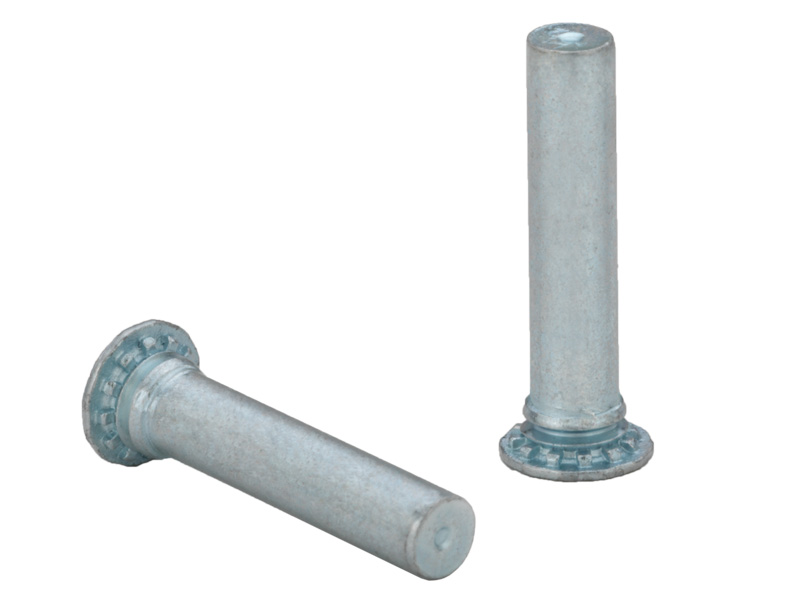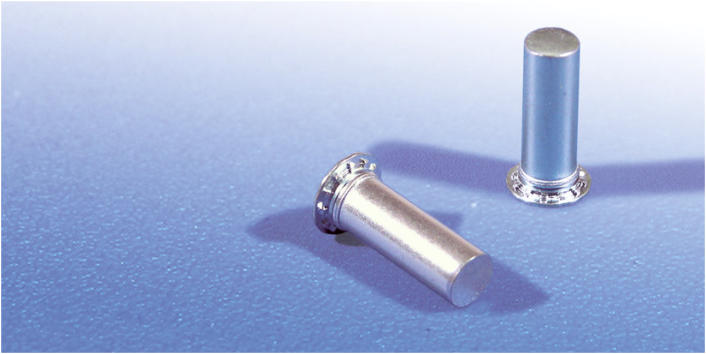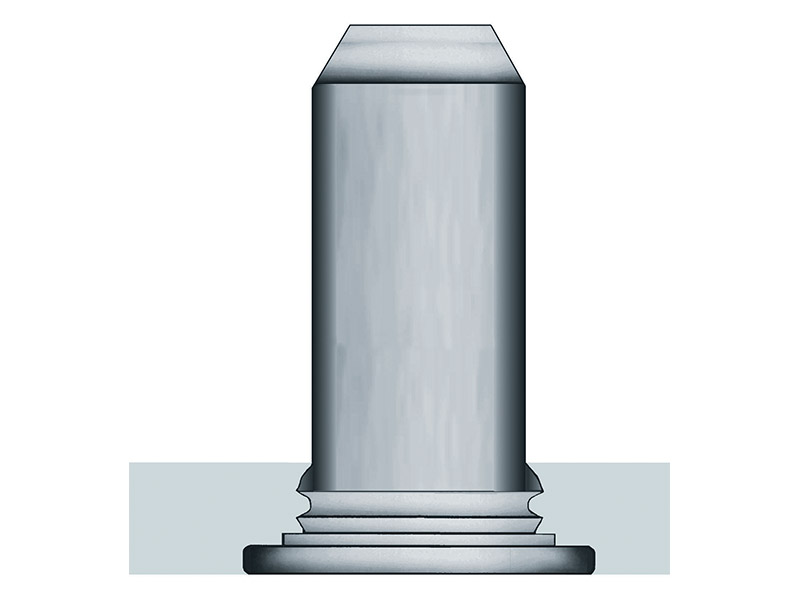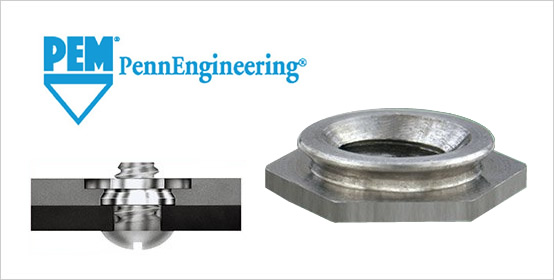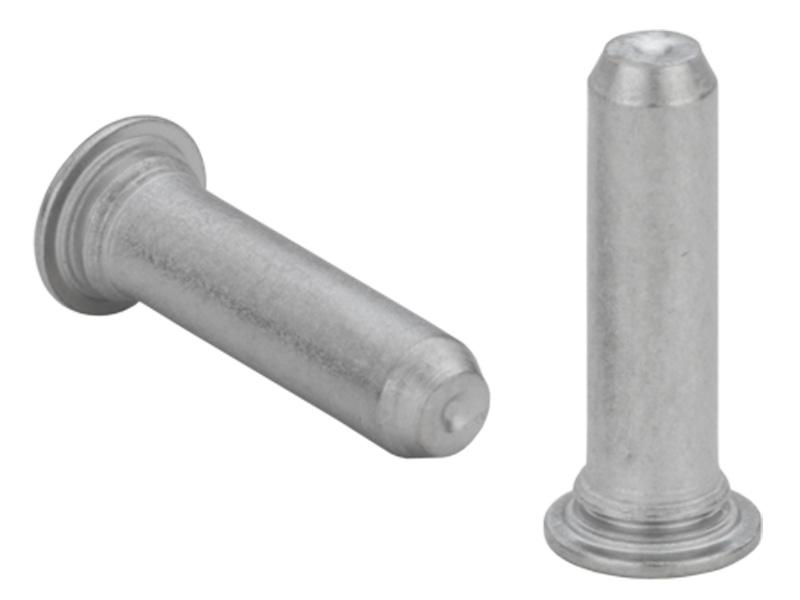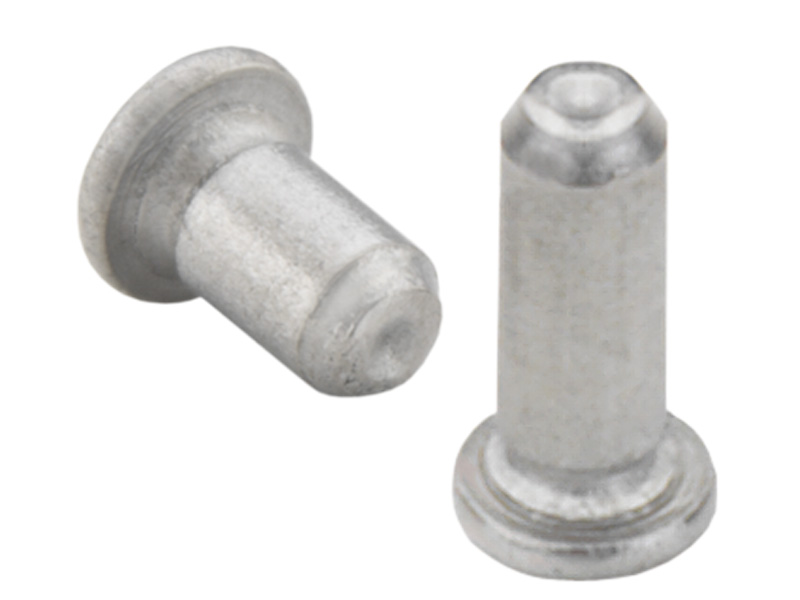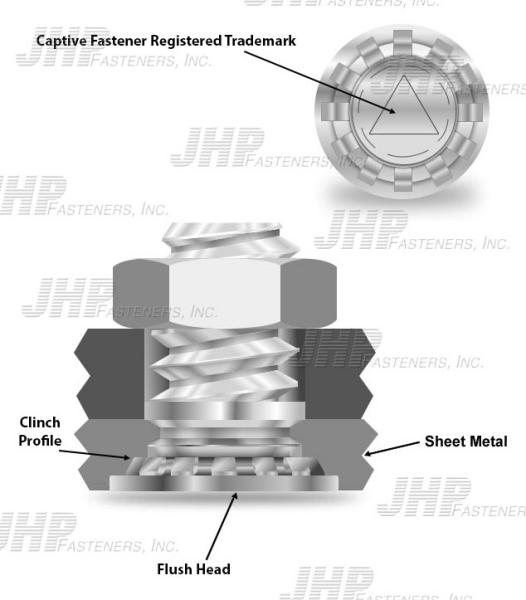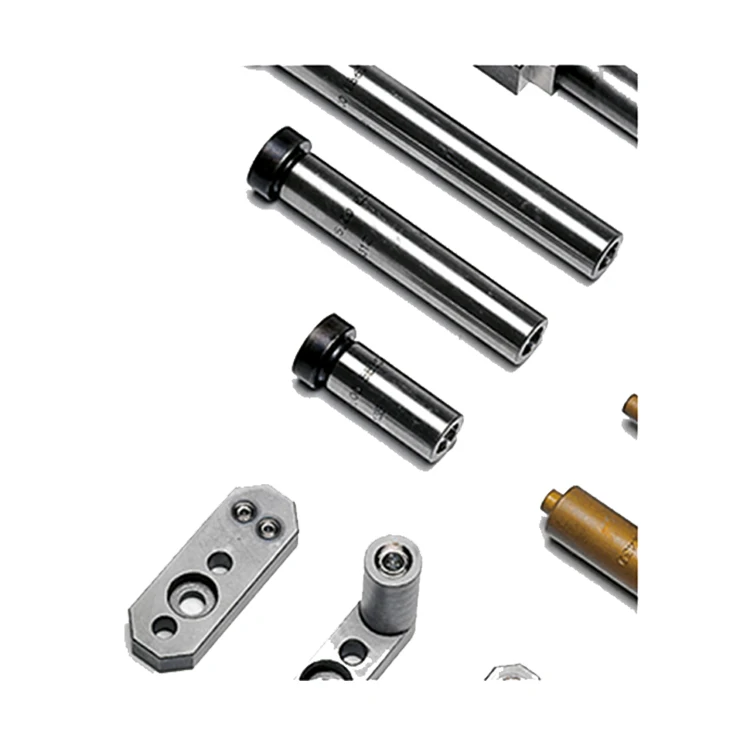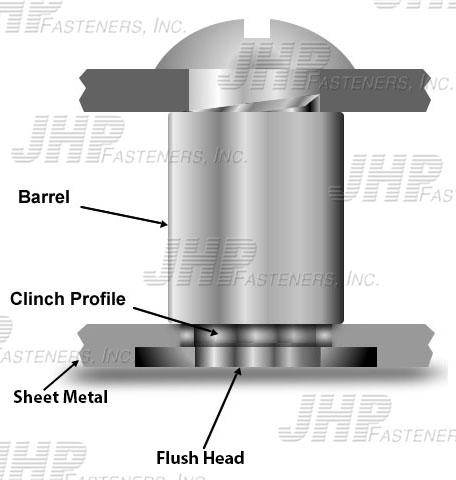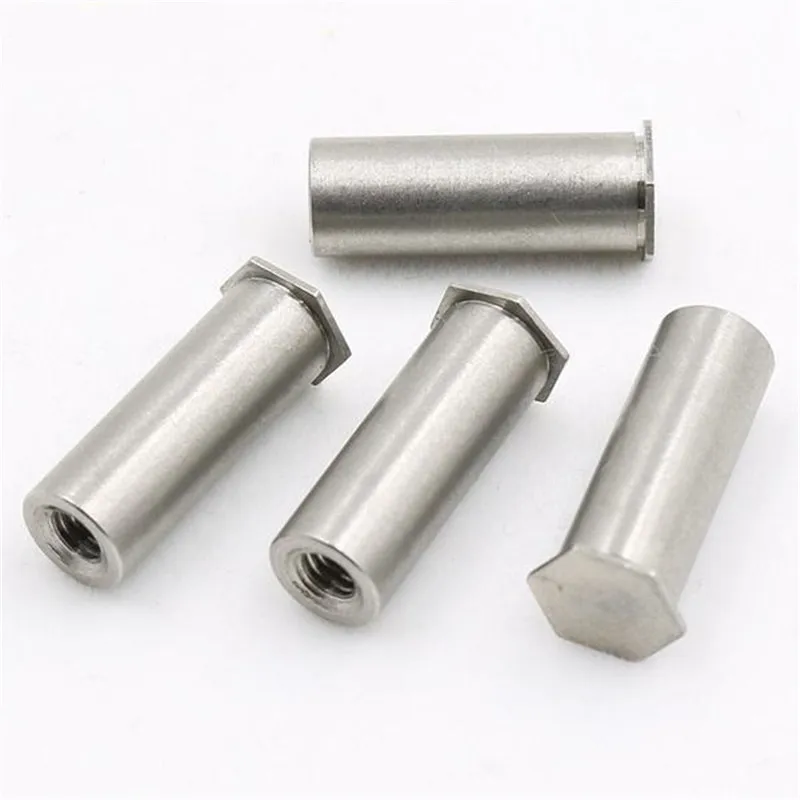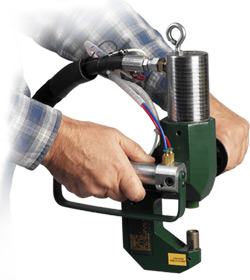Clinch On Pins For Sheet Metal

Find the right clinching joint for your sheet metal joining application.
Clinch on pins for sheet metal. Catalogue fasteners for sheet metal hank self clinch fasteners flush head pins. Simply pressed into a properly sized mounting hole these micro pins clinch permanently into place. Installation and tooling. They can be installed into a variety of sheet materials up to hrb 92 hb 195 in hardness and they offer excellent corrosion resistance.
Hairpin clip assortments clip these pins onto grooved shafts and clevis pins to keep components in place. The tox clinch procedure is a proven substitute for welding screwing riveting. The thfe is recommended for use in steel or aluminum sheets hrb rockwell b scale 85 or less and hb hardness brinell 165 or less. Clinching or press joining is a bulk sheet metal forming process aimed at joining thin metal sheet without additional components using special tools to plastically form an interlock between two or more sheets.
One type of self clinching pin is often used as a guide pin when aligning other components for assembly. The enlarged head diameter reduces stress on the panel and the thicker head allows for a larger hole in the attached panels. For further information visit our website http. It is one way to quickly and cost effectively join sheet metal without the use of fasteners welding or adhesives.
Clinch joining is also known as press joining or clinching. Sheet metal clinching styles clinching point shapes tox pressotechnik. The clinch design provides high strength in sheets as thin as 031 0 8 mm. Self clinch flush head pin.
Pem type mpp self clinching micropem pins are ideal for today s compact electronic assemblies. This short video explains how tr self clinch flush head pins provide an unthreaded pin in thin sheet metal. Clinching is characterized by a series of advantages over competitive technologies. The process is generally performed at room temperature but in some special cases the sheets can be pre heated to improve the material ductility and thereby avoid the formation of cracks during the process.
These captive fasteners operate in the same way as the self clinching studs but provide a permanently installed male pin of a certain diameter.


